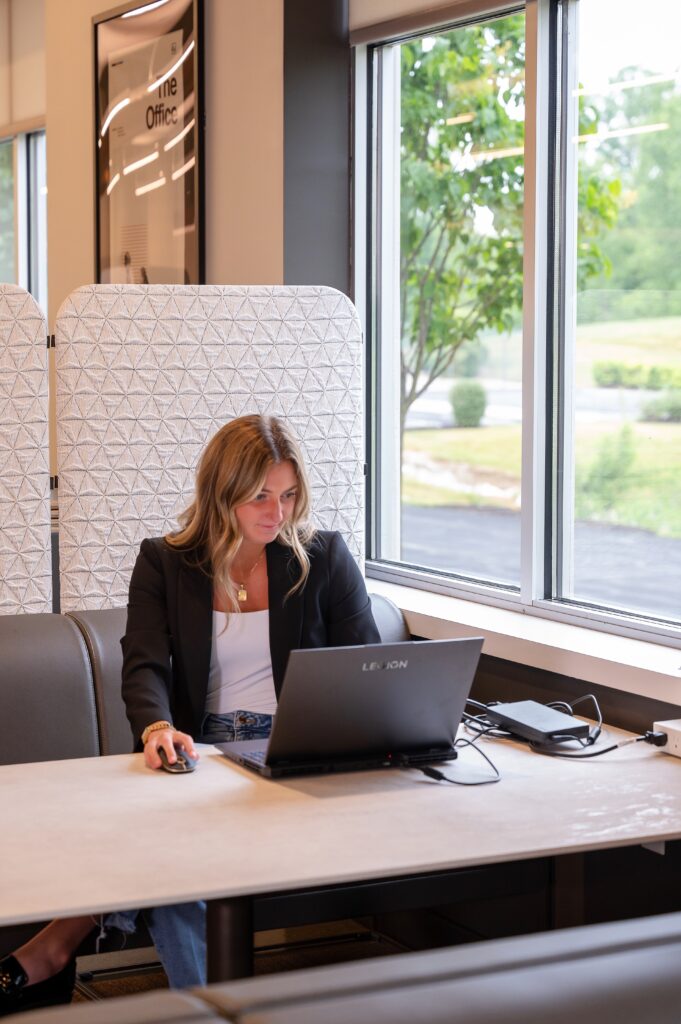A no lunch-at-your-desk protocol is a tough one. But what if you need to eat through your next meeting? Or are your deadlines tight?
Enter the social hub.

Places that encourage us to pause help us make collisions that build human connections.
-Eric Klinenberg, NYU professor and author.
The newly renovated Business Furniture + Co social hub sits near the front of the office with a variety of seating options. It’s home to the office baby showers, celebrations, and daily “water cooler” talks.
While the new protocol means embracing new work styles, it holds significant importance in fostering a positive work culture. It provides employees with a designated area to take breaks, relax, and socialize with their co-workers. This social interaction plays a crucial role in building strong relationships, creating a sense of camaraderie, and enhancing team dynamics. By offering a space where employees can connect on a personal level, the social hub promotes a supportive work environment, encourages collaboration, and cultivates a sense of belonging within the organization.
This social office café is a magnet for casual collaboration. Whether having a bite or staying plugged in, it easily accommodates individuals and small or large groups.

“Even if I’m finishing work in the social hub, I still have a new energy as I hear the buzz from the team around me,” said Designer Ashley Tarak, “as one of the newer members of the team, it’s a chance for me to speak mentorship and form connections with my coworkers.”
New research from Steelcase asked employees their reasons for coming into the office; while the top reasons are about completing tasks, employees also want to make connections.
When employees step away from their tasks and engage in informal conversations with their colleagues, it allows for the exchange of ideas, knowledge sharing, and brainstorming sessions. These spontaneous interactions often lead to creative insights, problem-solving, and the generation of new perspectives.

Spending time in a social hub promotes empathy among co-workers. It allows individuals to understand and appreciate each other’s unique perspectives, backgrounds, and interests. Employees develop a deeper understanding of their colleagues by engaging in casual conversations and sharing personal experiences, fostering empathy and creating a more inclusive work environment. This enhanced empathy leads to better teamwork, effective communication, and a supportive atmosphere where individuals feel valued and respected.
Be the first to comment